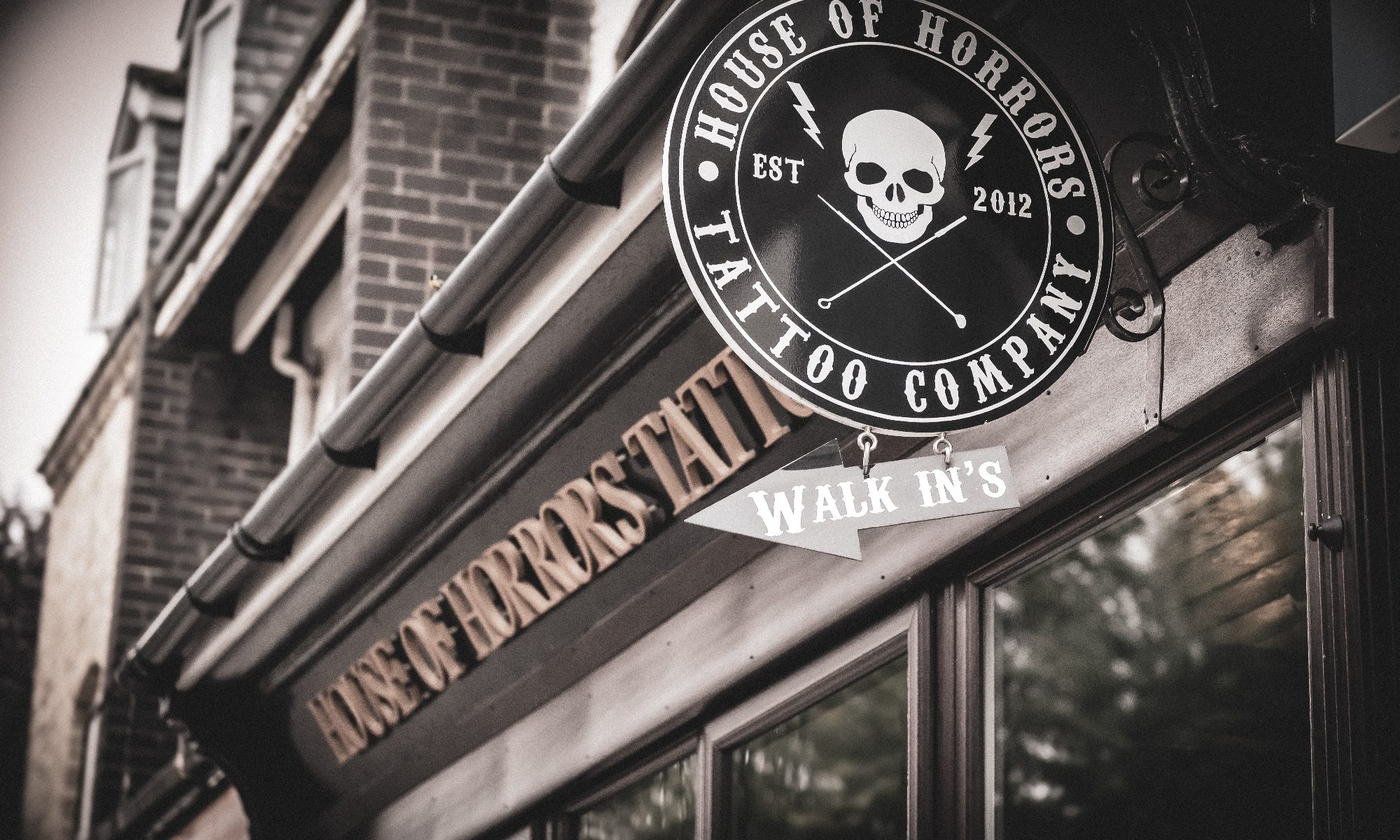Gemma and Tara Horrors (yep that’s their legal surname) met 13 years ago and fell in love – with each other and tattooing. They’ve been on quite the journey together, opening up two studios in Darlington, UK, and fighting sexist and outdated attitudes in the industry. Here they tell us all about their studios and what it’s really like to be married and work together…
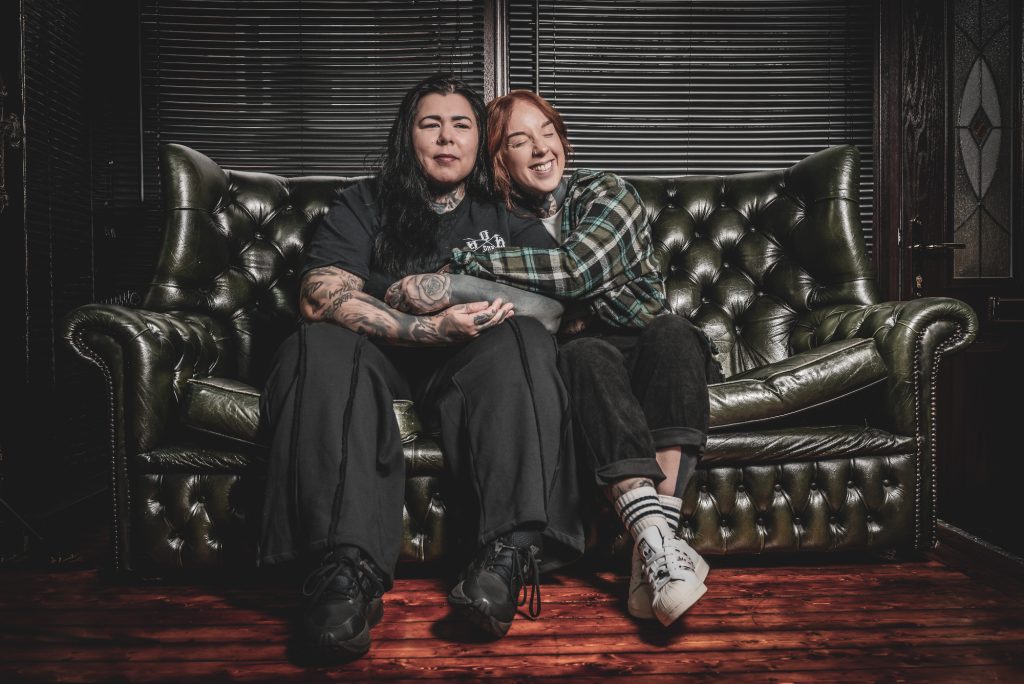
What inspired you to become a tattoo artist?
Gemma (@gemmahorrorstattoo): My favourite bands as a teenager were all heavily tattooed. I was a typical punk kid, as soon as I was old enough to get tattooed, I did. But I never thought I could be a tattoo artist until TV shows with female tattooers started airing. It was the coolest thing and the ultimate rebellion. I was working on the bank as a health care assistant alongside studying for my adult nursing degree, when I decided to become a tattoo artist.
Tara (@tarahorrorstattoo): I’d started getting tattooed at 15, in a studio next to the takeaway I worked in. I’m guessing the long hours and late-night shifts helped convince the studio owners that I was 18.
It wasn’t until I met Gemma that the idea of becoming a tattoo artist even occurred to me. Between my first tattoo in 1999 and meeting Gemma in 2011, the shift in the tattooing world was monumental, especially with shows like Miami and LA Ink.
I’ve always loved tattoos, getting tattooed and even the smell and feel of being in a studio. But before this new wave, the life of a tattoo artist didn’t look appealing. I changed careers a lot. I was a Prison Officer for three years and heading towards a career change when the idea of being a tattoo artist had become not only appealing, but plausible.
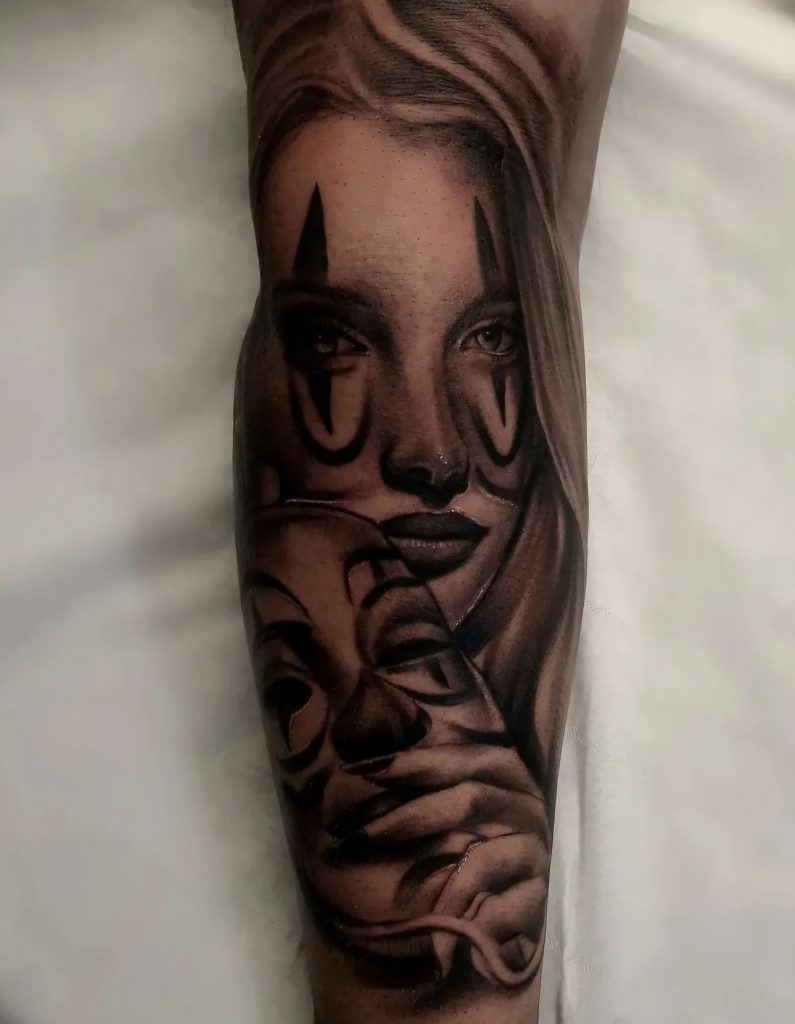
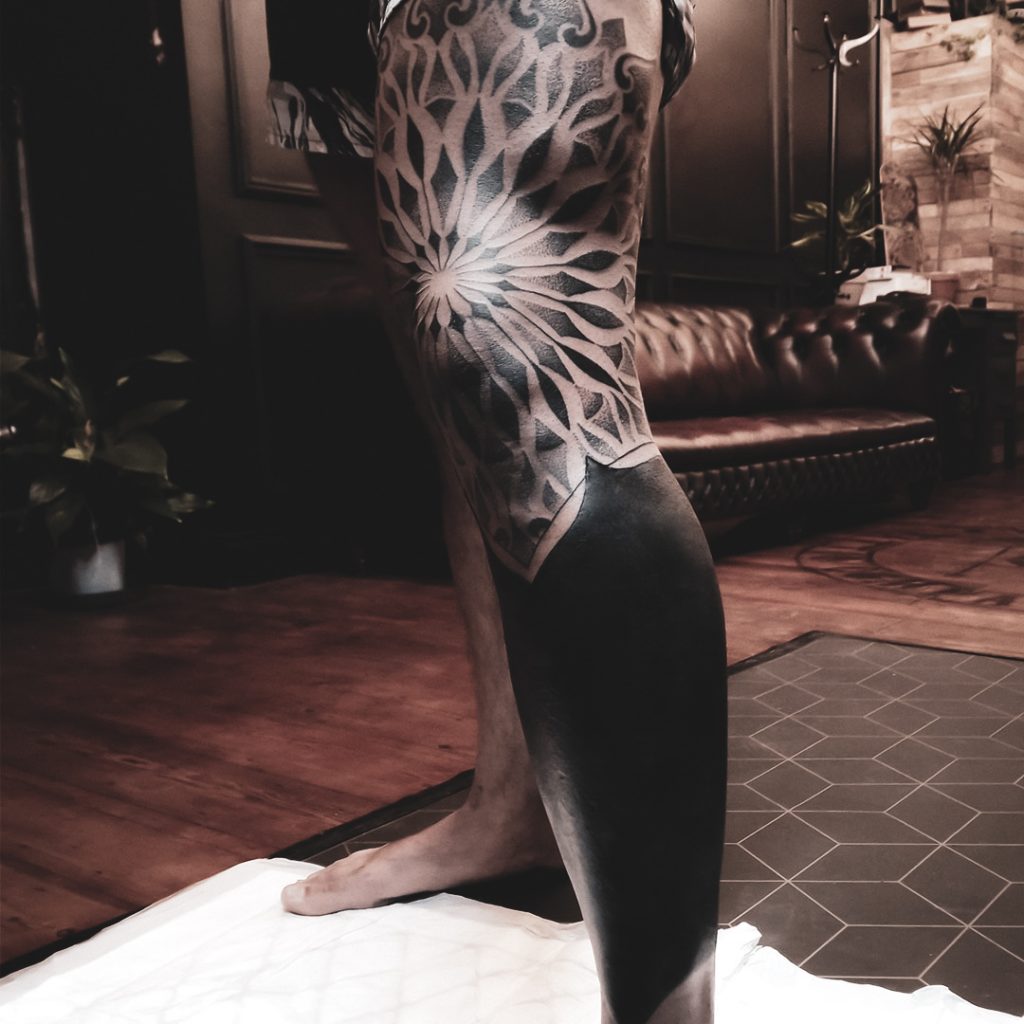
Is there a moment you fell in love with tattoos?
Gemma: It was feeling so much more confident in my own skin. Tattoos have that ability to turn your insecurities into confidence.
Tara: Not one specific moment but rather a period of a few weeks, where I suddenly became obsessed and consumed entirely by tattooing and tattoos. This was just after I’d tattooed myself for the very first time. It wasn’t until I held the tattoo machine and began creating myself that I became enthralled.
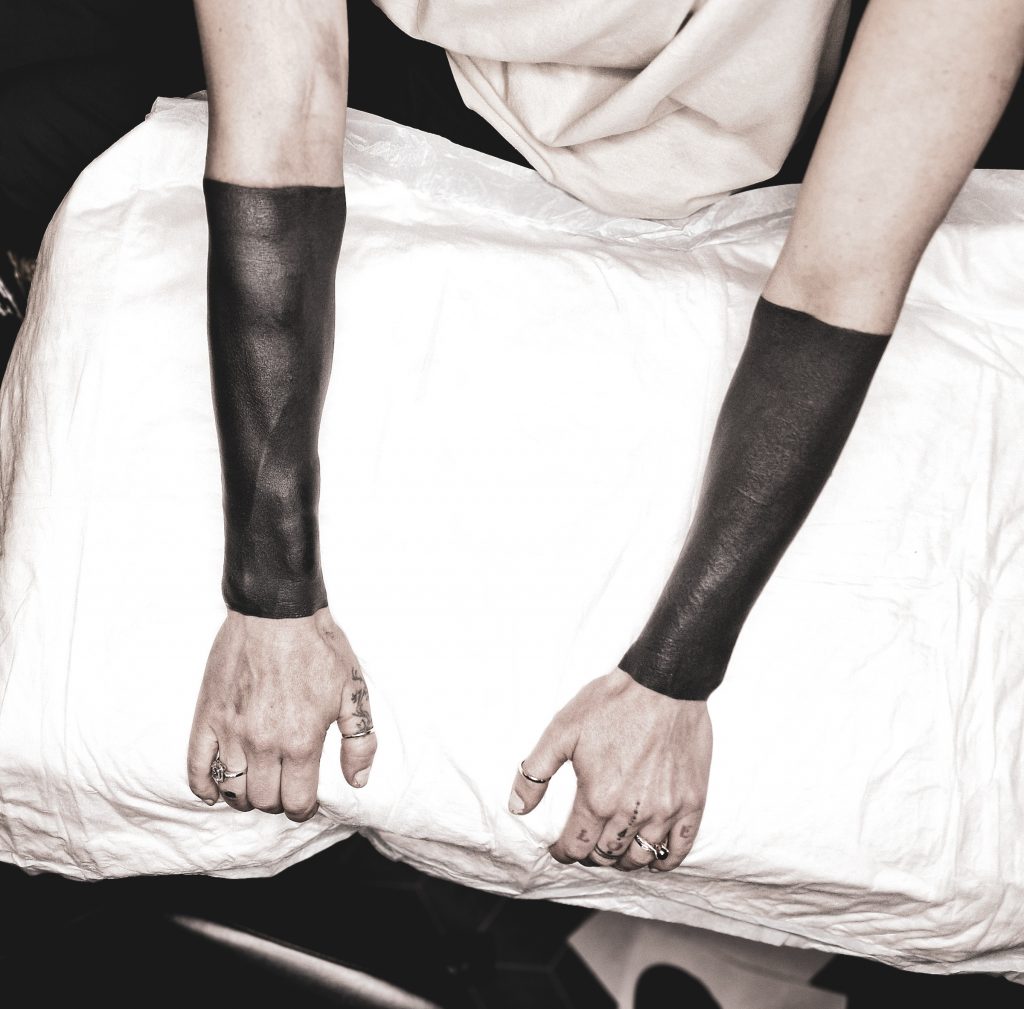
You have two studios, we want to know all about them, what’s the vibe?
Gemma: We created our studios to be complete opposites, so customers and artists have a choice.
House Of Horrors Tattoo Company (@houseofhorrorstattoocompany)
- Appointment only
- All-female studio
- The aesthetic is sophisticated Victorian-esque, industrial with a touch of steampunk
- The vibe is relaxed and professional
- A modern walk-in street shop
- Customers can call within the shop’s opening hours and get tattooed with a minimal wait
- The vibe can change daily depending on the customers, the tattoos, the different artists and desk staff
- It’s fun, energetic, open, friendly and inviting
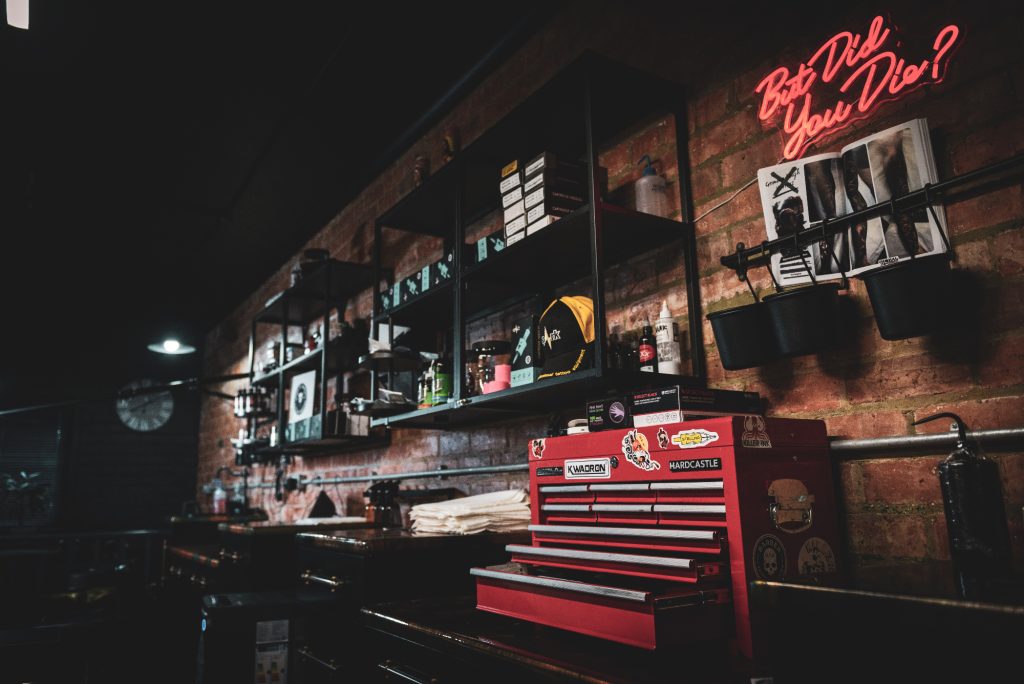
You own a mixed gender studio and a female-only one, why is that so important?
Gemma: Some customers feel more comfortable being tattooed by and being in the company of females. There’s many reasons for this. I personally love working alongside the women in our studio, there’s nothing quite like it. The support and motivation we provide each other is something we all treasure. We have each other’s backs no matter what.
On the other hand, we have all worked with men in the past and do enjoy that too. I love having the guys as part of our team and I wouldn’t change that – they are a crucial part of our team and success.
Tara: This may sound controversial, but from personal experience and through observations of others, it is clear that when men and women do work closely together, it is often in a way that reinforces gender roles. Something so simple as looking over at a female colleague when the phone rings, despite everyone being free to answer it. Secondly, and I think this is just a default in men in general, but unfortunately women are still subjected to having opinions forced upon them by the men they work with. This can be regardless of time served or position held and this can sometimes quash a woman’s motivations and inspirations.
A female-only studio can allow women to explore and develop on their own terms. Don’t get me wrong, the newer generations of men are much more aware of these issues and can be understanding at times. This is exactly how the guys we chose to work with are. Still I think there is a little way to go yet.
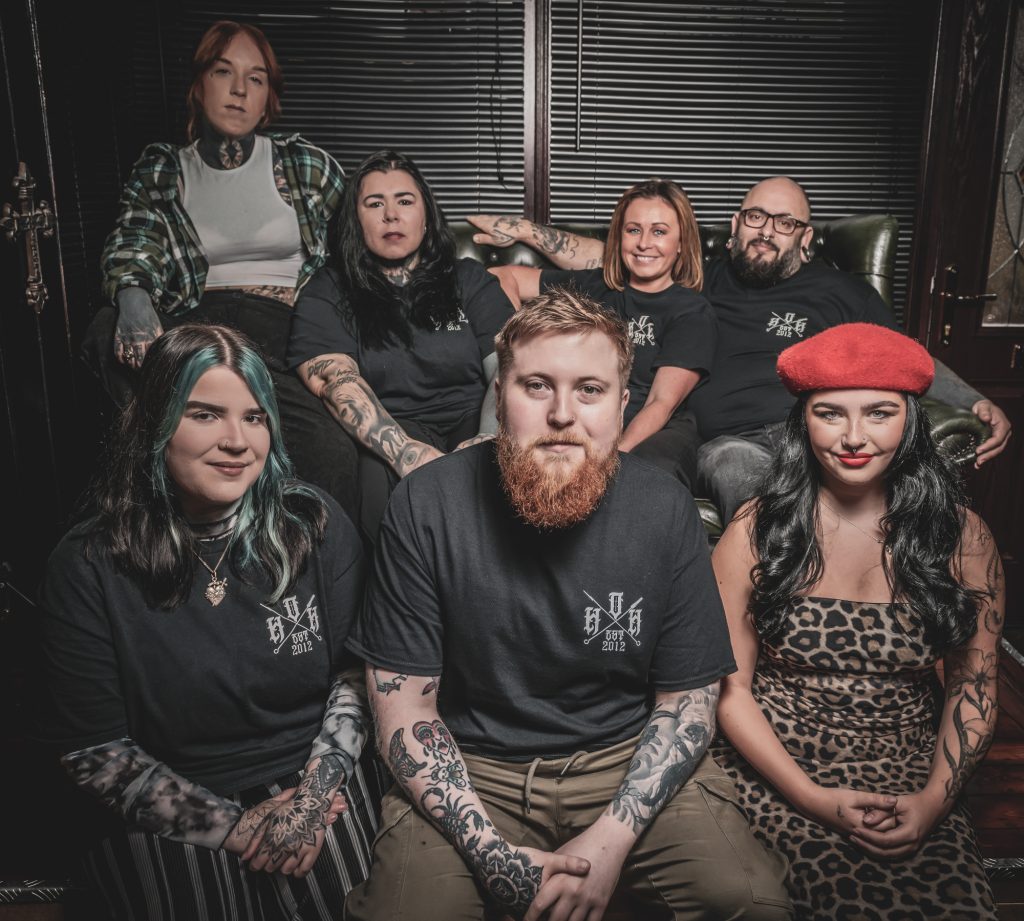
Do you have any red flags to watch out for or advice you’d like to share with clients?
Gemma: One thing I’m very open about is certain buzz words being used that are misleading to clients. A popular one is: ‘safe space’. I feel like this is sometimes used as a selling point but can have a very misleading meaning behind it. A safe space is what each individual deems it to be. For us, a safe space is a place in which you are free to be yourself without fear or judgement. We welcome this in our studios, we welcome discussions and opposing opinions. We don’t do ‘cancel culture’ or belittling because someone may have an opposing view to us.
However, at the same time, we do not tolerate hateful or disrespectful behaviour either. A lot of studios I see advertising themselves as safe spaces have also openly announced that people with certain beliefs, opinions and political views are not welcome in their studios. I have seen this on a few occasions and it’s pretty hypocritical and misleading for a customer.
So, if you see the term ‘safe space’, drop the studio a message and see what they actually mean by that. You might find they genuinely mean you are safe, free to be yourself and free from judgement. Or you could find yourself in a situation where you are only welcome if you fit a specific set of conditions.
Tara: I don’t think it’s necessary to get too bogged down in listing red flags, as people are pretty good at researching online. I’d just say, get your stalker hat on and go for it. Check out Instagram, Facebook pages and websites. Visit multiple studios, or at least check them out thoroughly on Google Earth and through tags on socials. Check out all the artists who work there, their style and vibes etc. Find a studio that seems right for you and trust your instincts. If it’s your first tattoo, ask questions – avoid studios and artists who aren’t willing to answer your questions or put you at ease.
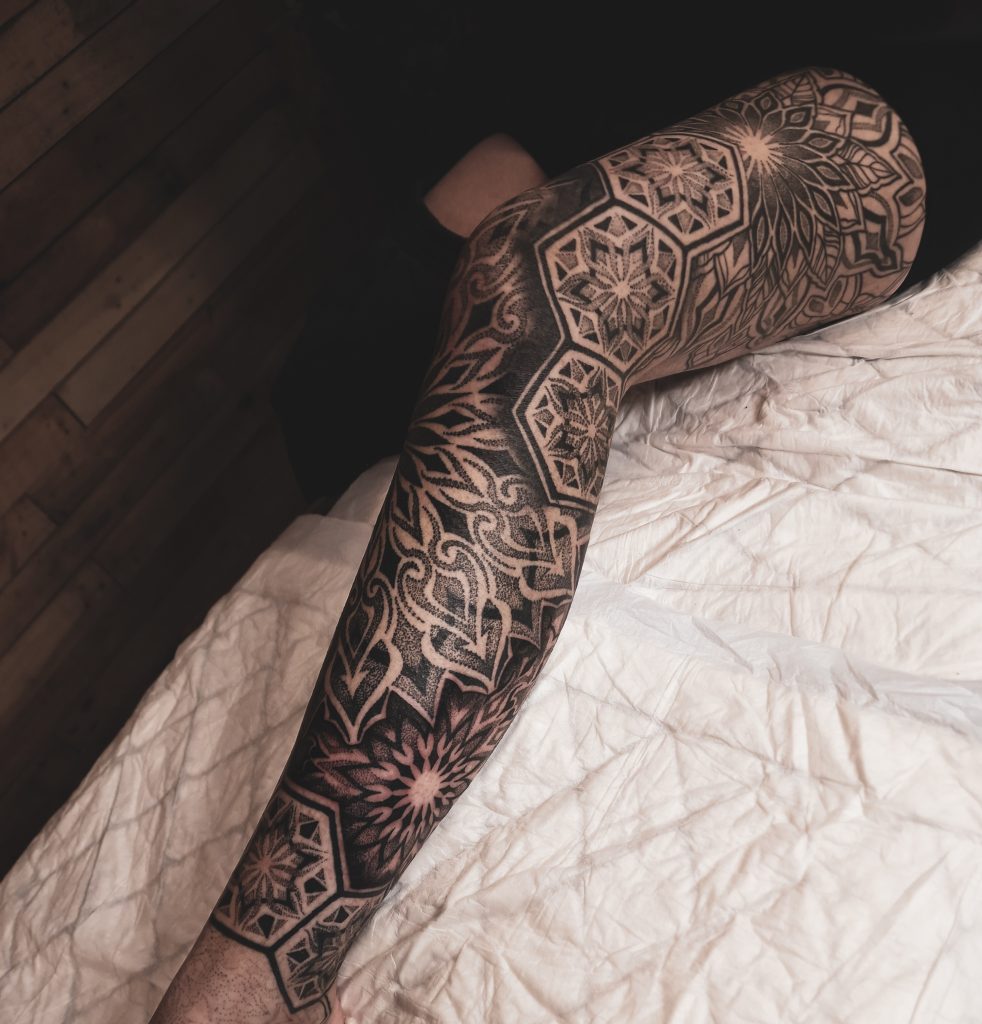
You opened your shop 12 years ago, and you’re the first women to set up a tattoo shop in your area, what kind of reactions did you get?
Gemma: We had a lot of patronising reactions at the beginning. Most of these reactions came from the fact that we weren’t JUST the only females to set up a shop in the area, we were the first tattoo artists in around 20 years to have the balls to open a studio in the area. There was only ever one other successful studio in Darlington.
People constantly devalued everything we achieved, usually men. We encountered males in the industry telling us that they themselves were afraid to do what we were doing. They were even telling us that maybe we should reconsider opening the studio and tattooing at all.
We also had a lot of jealous reactions. Reactions I doubt men would receive if they were to do the exact same thing. I feel like people don’t like to see others doing better than them, especially when that person is a woman.
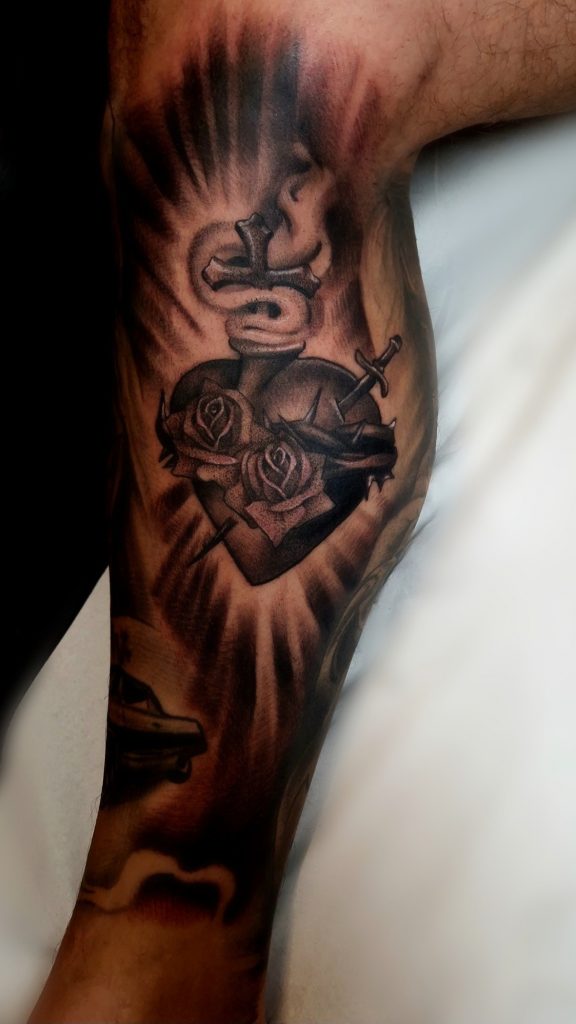
Do you still get those reactions now?
Gemma: The reactions have changed since then. It’s been a long road with people wanting us to fail on the way, but we wouldn’t have it any other way. We are stubborn and petty as hell. Other people’s doubt just fuels us.
There are about 15 studios in Darlington now, which all opened after we made that first courageous move 12 years ago. Honestly though, we personally love healthy competition, it keeps us sharp and inspires us to grow further. It’s crazy to think that two “girls” that “don’t have a clue” potentially opened the door for all of them.
Do you think representation of women is changing in the tattoo world?
Gemma: It’s definitely changing, without a doubt. Women are producing world-class tattoos and showing how far we can go. We do have more respect than we have had before, but there’s definitely more conversations to be had.
A concern for me is the treatment of younger women coming into the industry. We have women in our studio who have experienced disgusting treatment and I continue to hear similar stories.
Tara: It definitely is changing and for the best part it’s going in the right direction. For women who tattoo now is not the time to be complacent and to take things for granted, it’s time to come together to stand up for each other.
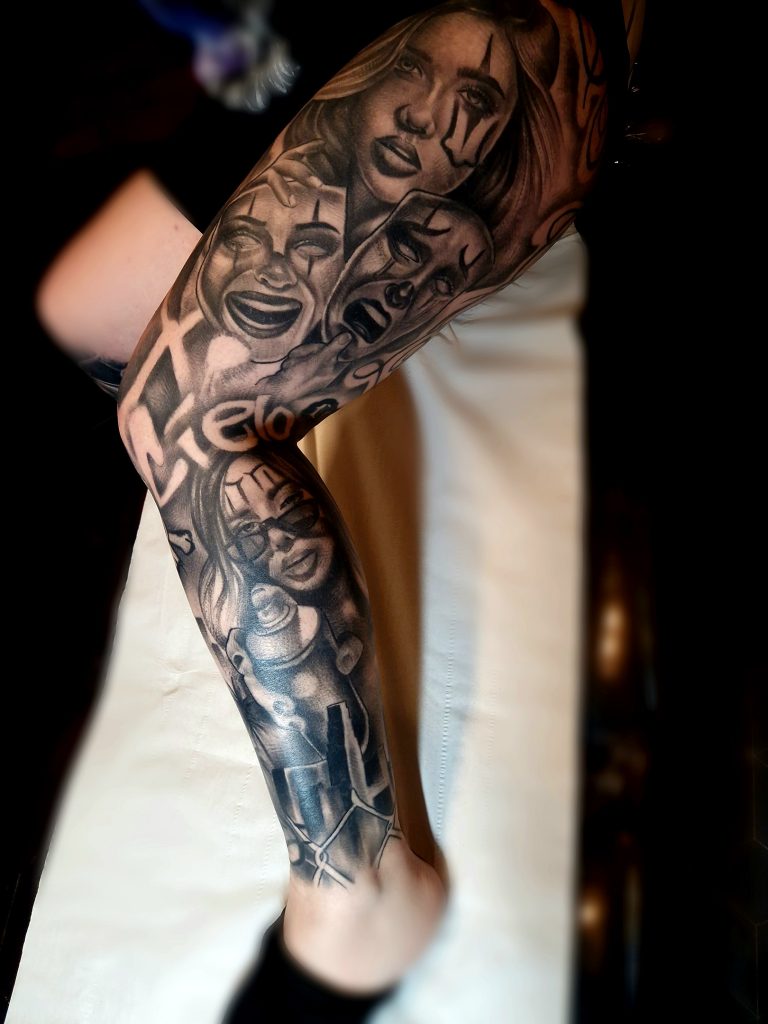
Are there any conversations that still need to be had?
Gemma: I’m not so sure these conversations need to be had amongst the women as much as they do amongst the men. We educate our apprentices about how they should/shouldn’t be treated. This should be a standard procedure of apprenticeships but unfortunately it’s not.
I’ve heard about conversations where multiple guys are talking about another male tattooer being inappropriate with younger females in the industry. The conversation ended with them acknowledging his actions were wrong but how he was “a cool guy though”. As if that makes it acceptable to be a groomer? It’s disturbing.
We all need to be on the same page. There are men who will stand up for women and what is right, but others are dismissing these issues because it just happens to be their “bro”. It isn’t enough to just have women calling out predatory behaviour, we need the men witnessing and dismissing it to condemn the behaviour too.
Tara: Far more than I feel there should have to be. Apparently, a local man, with close associations with a male known sex offender, is all set to help fund and set up an ‘all female tattoo studio’ in our local area. That violates everything an all female studio stands for. As an ex Prison Officer I have spent a lot, quite frankly far too much time in the presence of sex offenders and the thought of them having even the slightest involvement of anything that is so treasured by me is vile.
In fact, I think having any man involved in this way taints the idea of what we have come to believe an all-female studio means. I do really feel that the women in our industry, especially the younger or certainly more impressionable ones, need to have more guidance, protection and support. This can only happen if it is talked about.
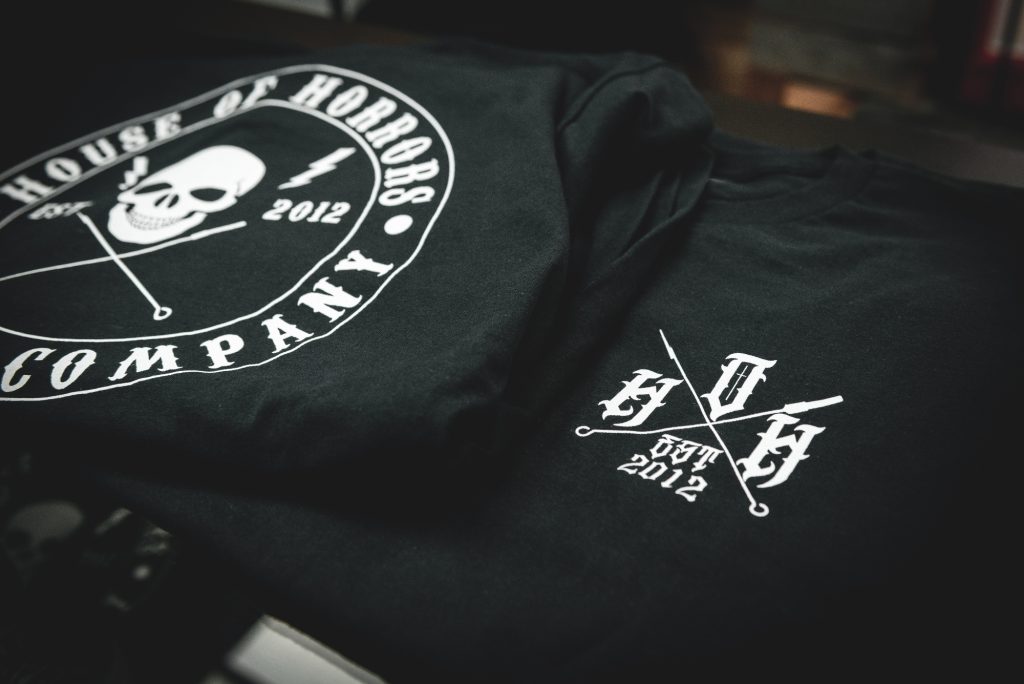
How did you two meet?
Gemma: We actually met in the small Yorkshire town in 2011 where we both lived, after being introduced by Tara’s younger brother, who was a friend of mine. We had never met before, despite living in the same town at different points in our lives. We like to think that this is more than a coincidence that we met when we did and that it is how it was supposed to be. Then we got married in 2012.
How was it tattooing each other?
Tara: Here’s the thing, I ‘ve never met a tattoo artist who likes being tattooed, in fact everyone I have met absolutely hates it. When you’re being tattooed by the person you love most in the world, it makes that situation just that little bit worse.
Then to top it off, with us both being tattoo artists, we constantly squabble over the tiniest things like the amount of times someone wipes over the tattoo or how hard they are stretching the skin. They say you should never teach your partner to drive, and I would say the same thing about tattooing them. Unfortunately for us, it makes too much sense to tattoo each other, as we love each other’s styles of work and literally tattoo every day side by side.
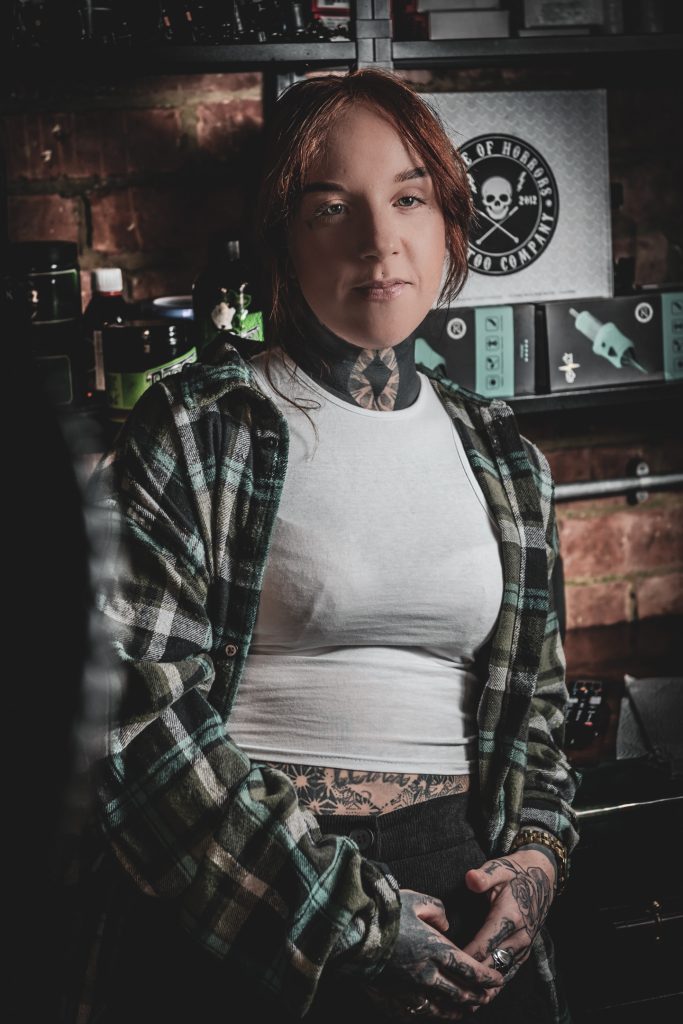
What’s it really like working with your wife?
Gemma: A rollercoaster, we opened the studio when we had only been together a year. So we learnt a lot about each other as we grew together. There’s challenges to overcome when you are working with your significant other but it’s certainly made our relationship bulletproof.
I am so proud of how we have evolved together and the team we have spent years of trial and error building. We get to laugh all day, talk all day, with each other and other people. All while doing what we love and with our best friends too. Tattooing is a huge part of our marriage and our lives, I will always be grateful for that and will never ever take it for granted.
Tara: Working with Gemma has its upsides, and its downsides. If I’m being honest the ups far outweigh the downs and I see that as a win. Although we are now at a point where we can really enjoy what we do, with only a fraction of those feelings of worry and anxiety that come with owning our own businesses, it certainly didn’t come easy.
Although we can be chalk and cheese on most things, we learned very quickly that communication, trust, loyalty, and respect would play a massive role in where we are today.
You can find out more about House Of Horrors Tattoo Company on their website. Make sure to follow both tattoo artists for more tattoos and booking information.
